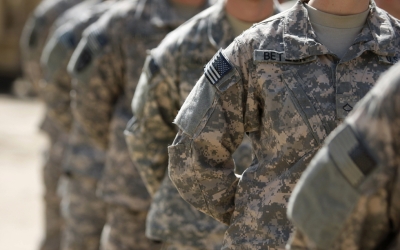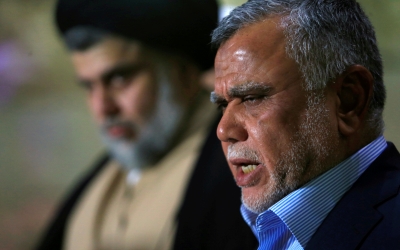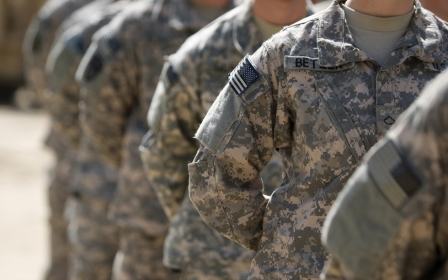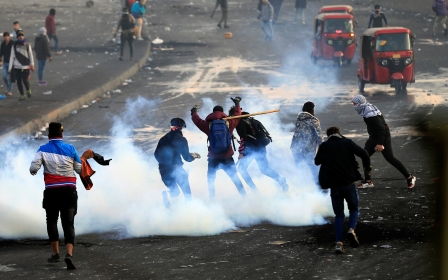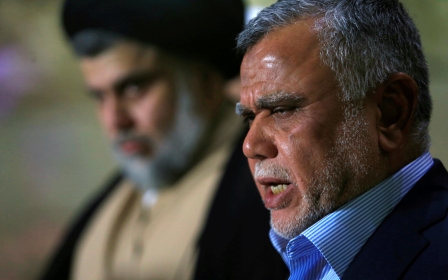Iraqi president meets with Trump in Davos despite threats from militia groups
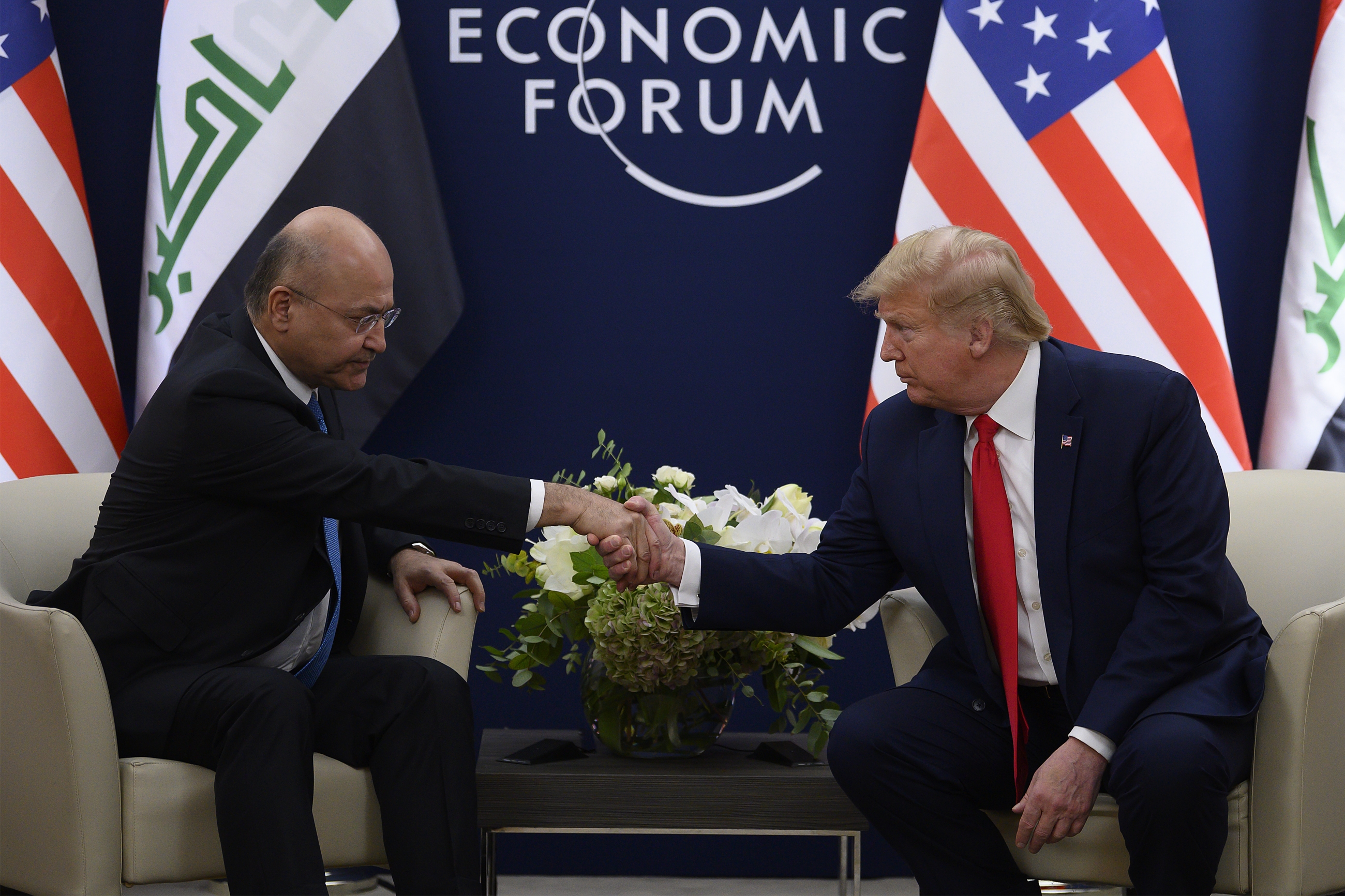
Iraqi President Barham Salih met with his US counterpart Donald Trump at Davos on Wednesday, despite warnings from militia groups that he would be "not welcome back" home if he did.
Tensions between Washington and the Iraqi government have been high since the targeted killing by the United States of top Iranian general Qassem Soleimani and Iraqi militia leader Abu Mahdi al-Muhandis in Baghdad earlier this month.
Ahead of the meeting in the Swiss resort between the two heads of state - the first since Soleimani's death - a number of Iraqi political figures and organisations warned against it.
Kataib Hezbollah, an Iran-backed group to whom Muhandis belonged, said on Tuesday that Salih would be guilty of "violating the will of the people" if he met Trump, and "ignoring the pure blood spilled".
“We emphasise the necessity of Barham Salih committing to not meeting stupid Trump and the squad of killers that accompany him,” security official Abu Ali al-Askari tweeted.
“We will then say, ‘You are not welcome, and our free children will work on expelling him from the honourable and mighty Baghdad'."
The warning was echoed by Harakat Hezbollah al-Nujaba, another Iran-backed armed group, who said they hoped Salih takes a "brave, patriotic, and historic stance and rejects meeting this fool".
“If, God forbid, this is violated, then Iraq and the people of Iraq will not accept or welcome the one who put his hand in the hand of criminals and terrorists, on whose hands is the blood of Iraqis," the group said in a statement.
While less belligerent towards Salih, a number of other political figures also called for the meeting to be cancelled, including Deputy Speaker Hasan Karim al-Kaabi, who called on Salih to respect "Iraqi sovereignty".
'We'll see what happens'
On 5 January, the Iraqi parliament voted in favour of expelling US troops from Iraq, a move that was supported by the outgoing Iraqi prime minister, Adel Abdul Mahdi.
The threat provoked an angry response from Trump, who threatened "sanctions like they've never seen before" following the move.
Speaking to reporters during a press conference with Salih on Wednesday, Trump said the US and Iraq had "a very good relationship" and said the number of American troops in the country was "historically low".
However, when asked about the sanctions threat by a reporter, Trump did not rule them out.
“We’ll see what happens, because we do have to do things on our terms," he said.
Ahead of their meeting, Salih, who is set to address the World Economic Forum in Davos later on Wednesday, said he looked forward to a "very fruitful and candid conversation with the president" and said the two shared a wish for a "sovereign stable Iraq" at peace with its neighbours.
Trump also met with Nechirvan Barzani, the president of Iraq's devolved Kurdistan Regional Government, in Davos on Wednesday.
On Tuesday, the bank through which Iraq pays for Iranian gas imports to power its grids warned it would stop processing payments if a US sanctions waiver was not extended next month.
"We'll stop. As simple as that," Faisal al-Haimus, the head of Trade Bank of Iraq, told AFP.
The US slapped brutal sanctions on Iran's energy sector in 2018 but has granted a series of temporary waivers to Iraq over the last 15 months to allow it to continue buying gas from Tehran.
However, a failure to renew the US waiver could be devastating for Iraq's crumbling electricity sector, which relies on Iran for about a third of its supply.
The country has been rocked in recent years by protests which have, in part, stemmed from a failure to provide electricity.
Middle East Eye delivers independent and unrivalled coverage and analysis of the Middle East, North Africa and beyond. To learn more about republishing this content and the associated fees, please fill out this form. More about MEE can be found here.


